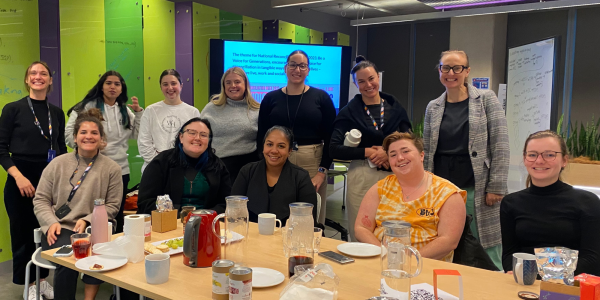Reconciliation is defined as the restoration of friendly relations. But this definition fails to encompass the complexity, depth and history behind the term. To gain deeper insights, we interviewed Tiah Vocale - Indigenous Liaison Officer at UTS and a member of the WiEIT community.
Reconciliation is interpreted differently by each of us, influenced heavily by our environment, interactions and lived experiences. To Tiah, it is “an ongoing journey” that works towards reconciling relationships between Indigenous and non-Indigenous people.
She believes it is important “for all people in Australia to use their voice and words to collectively build relationships between the wider Australian community and Aboriginal and Torres Strait Islander people, in acceptance of our nation's history”.
Reconciliation Week serves as an important reminder of the two key milestones in Australia’s history, the 1967 referendum and the High Court Mabo decision. Prior to these, Indigenous Australians’ rights to Native Title were not acknowledged, nor were they considered part of Australia’s population. Tiah’s Father and Grandmother had to endure this lack of recognition. Tiah embodies the values of reconciliation by sharing her story with others and building meaningful relationships in the community, to raise awareness on the injustices experienced by the first people of Australia and her own family.
An awareness and understanding of Australia’s history begins quite early on. Educational institutes play a key role in shaping the minds of our future. It is vital that they “encourage conversations and teaching that involves reflection on pre and post colonisation”. To involve children in the journey of reconciliation from a young age, they must first be exposed to our nation’s history and negative ramifications it entailed for the Indigenous population.
Tiah believes educators should be facilitating discussions which bring forward the significant events in Australia’s history that contribute to much of the disadvantage that exists today. She states that educators are crucial to intergenerational change, as they can create positive and safe learning environments that help students acknowledge intergenerational hardships and traumas, ultimately allowing them to realise the need for a more inclusive society.
What’s most important now, is using reconciliation as a means to strengthen our community both in the present, as well as the future. Tiah mentioned that reconciliation “enables conversations, creates awareness and empowers Aboriginal and Torres Strait Islander people to feel accepted and valued within the nation”. Through this process, we as a community learn to acknowledge the injustices of the past, establish respectful relationships between Indigenous and non-Indigenous Australians and pass on our learnings to future generations.
From this conversation we can derive that reconciliation is a long-term journey. One that requires historical awareness and a dedication to inspire change. The individual journeys of learning we embark upon combined with the collective efforts to sustain reconciliation, will allow for a community that is just and equitable in the upcoming future.
Nikitha Rao, Gender Equity Ambassador


